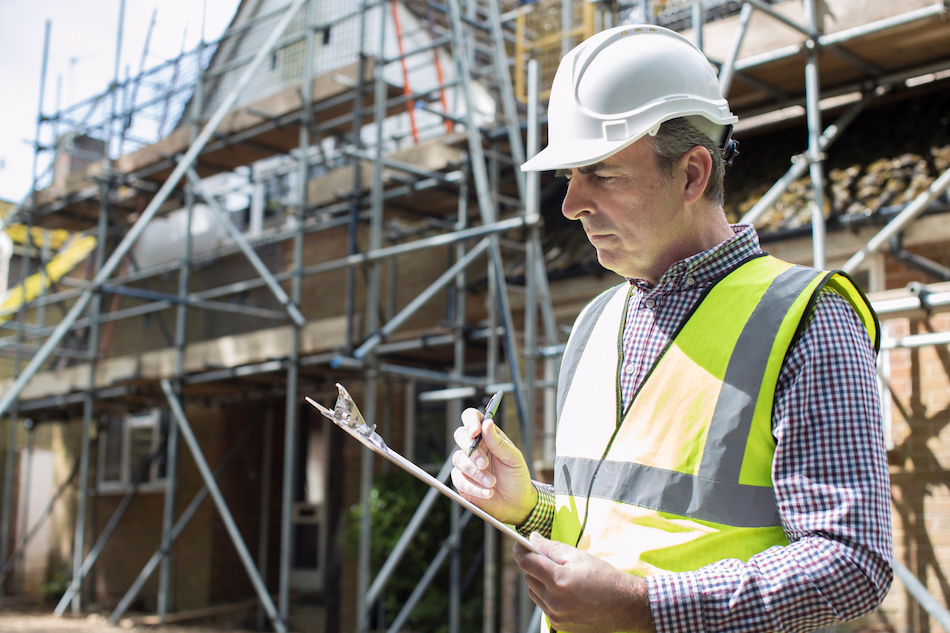Selling Your Home? What You Need to Know About Unpermitted Work
Posted by Justin Havre on Thursday, July 26th, 2018 at 2:20pm.
 When it's time to sell your home, unpermitted work can be a big problem. Unpermitted work is any work done without a permit to ensure that it's done to regulation standards. Permits ensure the safety of people who live in and utilize a renovated space, and without them, there's no guarantee for the quality and safety of the home. Therefore, when it comes time to sell, a house with unpermitted work can become a problem that makes selling a home difficult—it may even force homeowners to sell their homes for a significantly reduced price. Knowing what to do about unpermitted work can help homeowners avoid problems when the time comes to sell the property. Here is everything you need to now about unpermitted work and what to do when a house has unpermitted improvements.
When it's time to sell your home, unpermitted work can be a big problem. Unpermitted work is any work done without a permit to ensure that it's done to regulation standards. Permits ensure the safety of people who live in and utilize a renovated space, and without them, there's no guarantee for the quality and safety of the home. Therefore, when it comes time to sell, a house with unpermitted work can become a problem that makes selling a home difficult—it may even force homeowners to sell their homes for a significantly reduced price. Knowing what to do about unpermitted work can help homeowners avoid problems when the time comes to sell the property. Here is everything you need to now about unpermitted work and what to do when a house has unpermitted improvements.
What is a Building Permit?
A building permit is required any time changes are made to the structure of your home. The permit ensures that the work is done to code and the structural changes are safe. Permits are also required for gas, plumbing and electrical work, and are typically counted among the paperwork necessary to provide when selling a home.
Why are Permits Important?
Permits ensure that the construction work done on a home is safe and the occupants are safe. Without a permit, changes made to the home could have serious flaws that could lead to structural problems, instability, leaks, fires and mold. In general, unpermitted work can create unsafe living conditions for the people in the house. When it's time to sell, unpermitted work can also reduce the value of the home.
Why Do Homeowners Skip Permits and When is Unpermitted Work Usually Discovered?
Permits cost money. In some cases, permits cost a lot of money. Because permits involve government oversight during the construction of the home, inspectors must be paid to come out to the house throughout the project. The more involved a project is, the more the permit is likely to cost. Many homeowners choose to remodel without permits because remodels are expensive and permits simply add to the overall price tag.
Homeowners typically find out that their home has unpermitted work when they try to take on their own construction projects. Without bringing the rest of the home up to code, renovations cannot move forward.
The Disadvantages of Selling a Home with Unpermitted Work
Having unpermitted work done on a home can be a major hindrance when it comes time to sell. While selling a home as-is is a viable option, it also presents disadvantages that are avoided when the homeowner gets permits before selling. Here are some of the different reasons that homeowners may want to avoid selling a house with unpermitted work as-is:
- Unpermitted work can put off buyers because if they buy the home, the responsibility will become theirs. Many buyers are unwilling or hesitant to do this.
- Buyers can face a penalty for not pulling a permit, which can also put them off of buying the home.
- If the homeowner chooses to skip disclosing unpermitted work to buyers to try to trick them into buying the home, it will create legal trouble when the home’s buyer eventually discovers it.
Selling a house without permits can be difficult if the homeowner chooses to sell as-is and rely on the buyers to take care of the work. Homeowners need to be positive they want to go forward with selling a house without permits and that they disclose all unpermitted work done to avoid lawsuits.
What Can You Do About Unpermitted Work?
If you live in a home with unpermitted work and you'd like to sell the property, you'll be faced with two choices.
- Get the permits retroactively.
- Try to sell the house without permits.
Getting a permit retroactively can be costly. In addition, if the work was not performed to code, a contractor may need to come in to fix the damage. Depending on the extent of the unpermitted work and how much demolition must be done in the process, getting a retroactive permit may cost hundreds or thousands of dollars.
Trying to sell the house without a permit can also be costly. While some home buyers may be interested in purchasing the property, most will insist on purchasing the home at a discount. This can make selling the home take longer and can also cut into profits.
If you'd like to know how much it would cost to get a permit retroactively and how much it might cost to fix any construction that was not installed to code in a Mahogany neighborhood home or elsewhere, work with your government officials and construction contractor. Getting quotes before you proceed can help you decide if getting the permit retroactively is the right move for your home.
